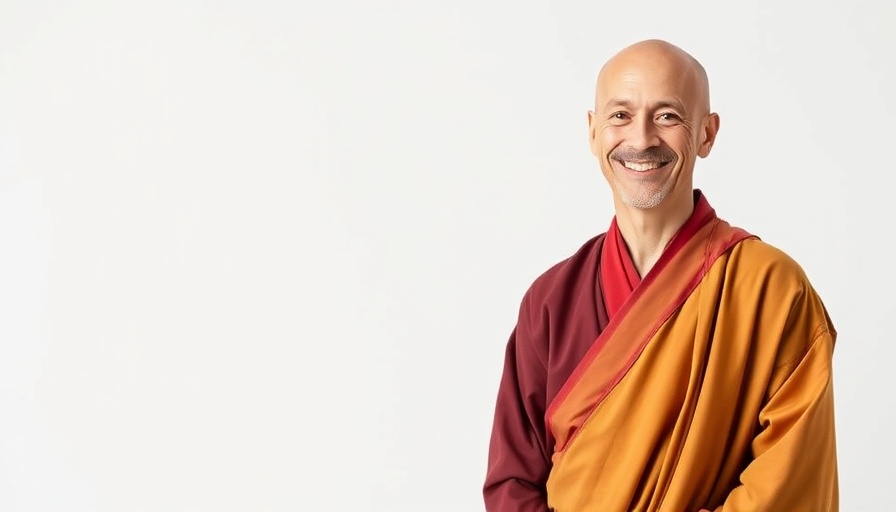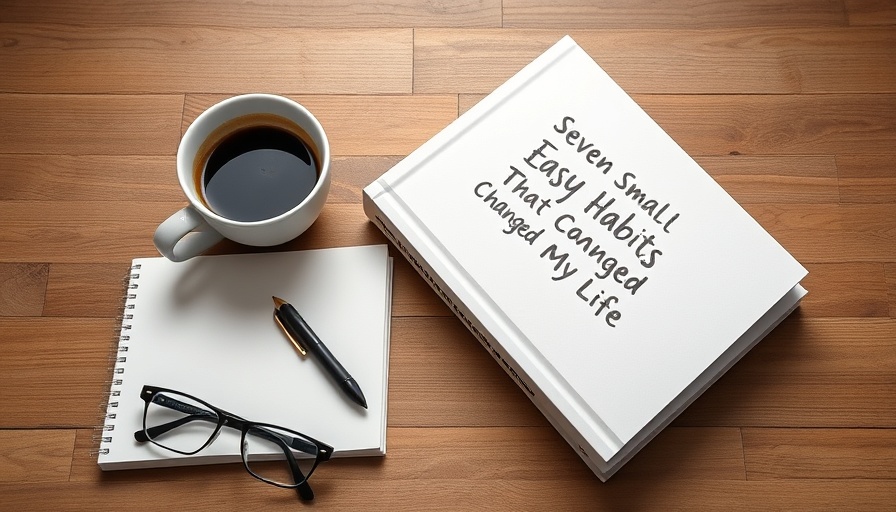
The Essence of Mindfulness: A Path to Happiness
In an era where stress and anxiety permeate our daily lives, finding peace through mindfulness has become more crucial than ever. Gelong Thubten, a Tibetan monk and author of A Monk’s Guide to Happiness, sheds light on this ancient practice that not only allows us to navigate stress but enhances our overall well-being. Through mindful meditation and awareness, we can cultivate happiness and push through the chaos of modern life.
Mindfulness: More Than Just a Buzzword
Mindfulness often gets thrown around in wellness circles, but what does it truly mean? According to Thubten, it involves being present in the moment and accepting it without judgment. This practice not only helps reduce stress but can also lead to improved emotional intelligence. As adults juggling busy schedules and various responsibilities, incorporating mindfulness into our routines can serve as an antidote to the relentless pace of modern living. The journey towards mindfulness promotes a healthy lifestyle by maintaining emotional balance.
The Power of Community in Meditation
Thubten emphasizes the role of community in practicing mindfulness. Connecting with like-minded individuals amplifies the compound benefits of meditation. This is particularly important in today's disconnected world where social media often leaves us feeling isolated. Group meditation sessions not only build a supportive environment but also create an invaluable space for sharing experiences that can enrich our individual practice. By aligning with others who share a common goal of well-being, we increase our motivation to stay committed to our mindfulness journey.
Practical Insights: Implementation is Key
So how can you integrate mindfulness into your already full life? Start small, recommends Thubten. Just three focused breaths when you wake up or are in the midst of a stressful moment can set a tone of calm for your day. Another method includes setting aside 5-10 minutes for meditation or mindful walking during lunch breaks. These simple yet effective actions can create ripples of positivity that extend throughout the day.
Fostering Longevity and Vitality Through Mindfulness
Interestingly, research suggests that regular mindfulness practices may contribute to longevity and vitality. A study published in the journal Psychosomatic Medicine established a correlation between mindfulness meditation and decreased inflammation markers, leading to a healthier life overall. Embracing mindfulness isn’t just about emotional well-being; it’s a proactive approach for a healthier and longer life. Taking care of our mental and emotional needs through mindful practices can lead to improved physical well-being, reigniting our energy and zest for life.
The Mind-Body Connection: A Profound Awareness
Being mindful also means becoming acutely aware of our body and its signals. Developing this connection allows us to recognize when we’re tired or stressed and respond with appropriate self-care strategies. This awareness is crucial for maintaining a healthy home and environment, as it prompts us to create surroundings that are conducive to wellness.
Common Misconceptions About Mindfulness
A frequent misconception is that mindfulness is only for those in a calm, serene environment, or that it requires hours of dedicated practice. This simply isn’t true. Mindfulness is accessible to everyone, anytime, anywhere. It can even be practiced in the hustle and bustle of a busy city or in the midst of workplace stress. Thubten’s teachings remind us that every moment is an opportunity to practice mindfulness, dispelling the myth that it requires a dedicated retreat or hours of solitude.
Take Action: Your Journey to Happiness Starts Now!
As we reflect on the teachings from Gelong Thubten, it's essential to take actionable steps toward incorporating mindfulness in our daily lives. Start by setting aside just a few moments each day for yourself. Create a dedicated space at home for meditation, even if that just means sitting quietly with your thoughts. Explore local classes or individuals in your community interested in cultivating mindfulness. Remember, the journey to happiness through mindfulness begins with a single step.
Are you ready to embrace a healthier and happier lifestyle? Join the conversation about mindfulness and its benefits on social media or in your local community. Let's support each other on this enlightening journey—a path towards happiness awaits!
 Add Row
Add Row  Add
Add 




Write A Comment